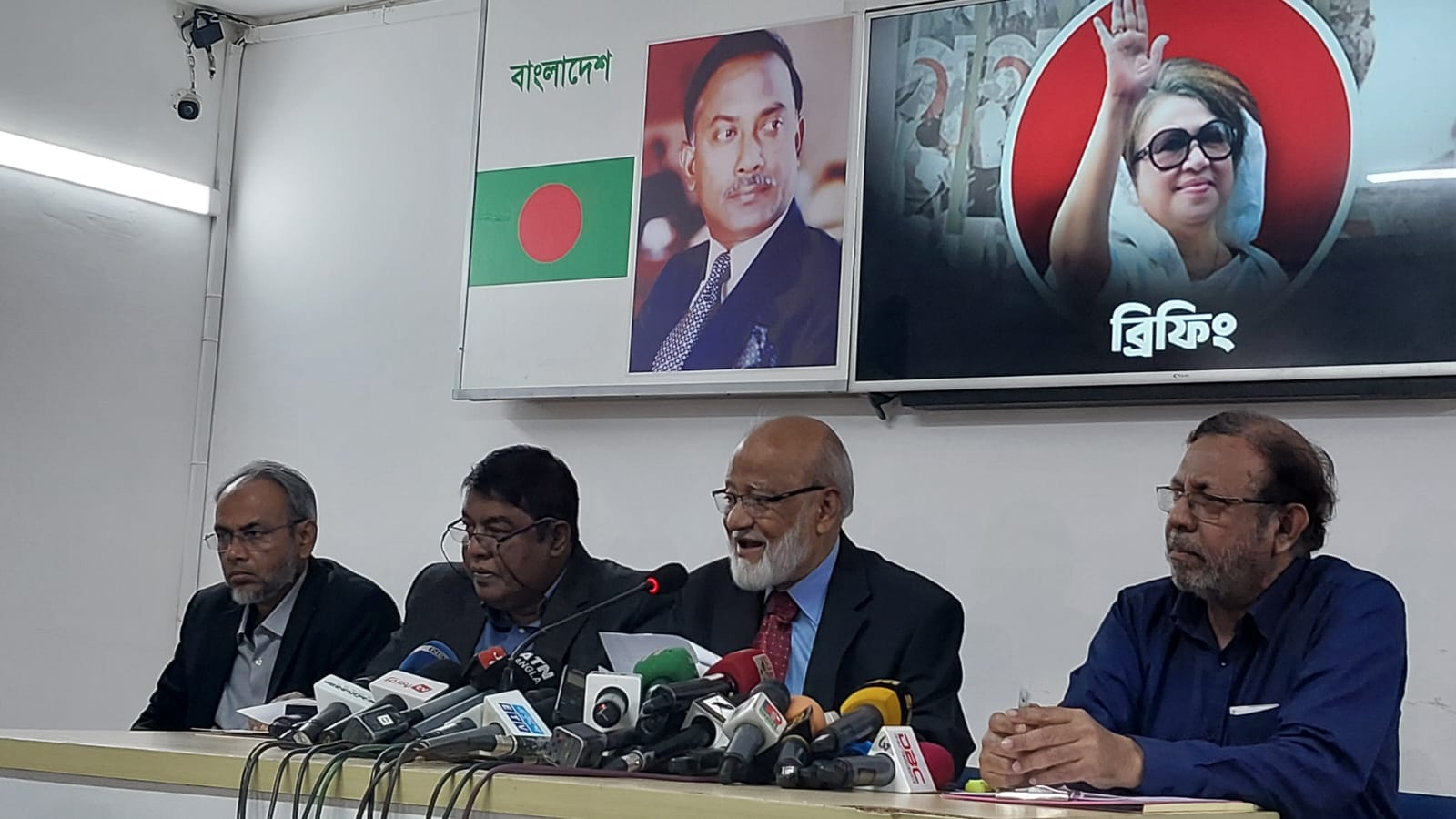News Flash
News Flash

DHAKA, Feb 4, 2025 (BSS) - Bangladesh Nationalist Party (BNP) announced today an outline of national health sector reforms with the aim of building a 'universal health system' in Bangladesh on the model of the United Kingdom (UK)’s National Health Service (NHS).
Party Standing Committee member and former Health Minister Dr. Khandaker Mosharraf Hossain presented the outline at a press conference at the political office of the BNP Chairperson in Gulshan this morning.
The senior BNP leader said that just as quality health services have not yet been ensured for the marginalized population, medical education is not planned today.
"Our medical system has not achieved the desired competitiveness at the regional and international levels so that the general public still has a high rate of going abroad to receive medical services," he said.
The private health service system has not become a universal reality yet, he said.
Khandaker Mosharraf said access to health services is one of the fundamental rights of the people have yet not been reflected in the expected policy.
In the light of universal health coverage, the 26th clause of the BNP’s 31-point outline for repairing the state structure has been proposed to reform the health sector, he said adding that according to this clause, BNP will take steps to ensure the right to free health services for all in light of the existing system in a developed welfare state based on this policy of health for all.
All necessary steps will be taken to ensure the highest level of health services for all, he said.
Highlighting the health sector proposal, Khandaker Mosharraf said If BNP comes to power in future; it will further expand the social safety net for the deprived and poor people until poverty is eradicated.
The GDP allocation to the health sector in the national budget will not be less than 5 percent, he said.
In order to ensure primary and preventive health services, adequate number of trained male and female rural health workers will be provided, he said adding treatment, education and research facilities for infectious and non-communicable diseases will be ensured.
The former health minister said that in the discussion of the health system in Bangladesh, all plans, guidelines and policies are often formulated keeping in mind registered medical doctors are under the Medical and Dental Council.
As a result, the existence of the existing traditional medicine, Unani, Ayurveda, homeopathic, Kabiraji medical systems in the country is being neglected, he observed.
It is equally important to provide necessary research and various assistance to further develop, modernize and scientism the traditional treatment system, he suggested.
During the last 15 years of Awami League rule, irregularities, financial corruption, administrative malfeasance, and partisanship have led to deterioration of doctor-patient relations and spread of foreign-oriented treatment, Dr. Khandaker Mosharraf Hossain also alleged.
Highlighting the BNP's proposal to take measures in three phases for the comprehensive development of the health sector, Khandaker Mosharraf said, "Our proposal includes a short-term (one to three years) plan. We have emphasized here on the appointment of rural health assistants. We have talked about improving the quality of services in the Upazila Health Complex and transforming it into an effective primary reference center, ensuring necessary specialized services, and planned family and population management."
He said best health services will be ensured to every citizen under a government registered doctor by General Physicians (GPs) at state expense.
Existing district-level hospitals and specialized-level health services will be strengthened and a proper reference system will be implemented side by side with ensuring 24-hour help lines, emergency medical services, post-accident care, rapid transfer arrangements, justice in healthcare, equality-based legislation for patients and service providers, and effective arrangements for improving doctor-patient relations in coordination with individuals representing the society.
He also highlighted the need for fundamental changes in the entire health sector through ‘medium-term’ (one to five years) and ‘long-term’ (up to 10 years) plans.
Welcoming the interim government’s initiative to reform the health sector, Khandaker Mosharraf said, ‘We are also presenting our proposals."
He said, ‘we are presenting this proposal to the nation that if the interim government accepts these proposals, the government of the people that comes in the future will implement them.
"And if the people choose BNP and send it to the government in the next election, then we want to assure the people that we will try to implement everything we have presented in the health sector reform," he said.
He said, ‘We believe that reform in all fields is an ongoing process, and its implementation in a practical and applicable manner through continuous analysis, evaluation and refinement is the key to success."
As a pro-people party, BNP is committed to implementing health reform proposals for the welfare of the people in stages by giving due respect to the opinions of all, he said.
Paying tribute to those killed in the student-people’s revolution, Khandaker Mosharraf also demanded prompt provision of adequate medical treatment for those injured in that movement.
BNP Health Affairs Secretary Dr. Rafiqul Islam and BNP Media Cell Coordinator Professor Moudud Hossain Alamgir Pavel were present at the press conference.